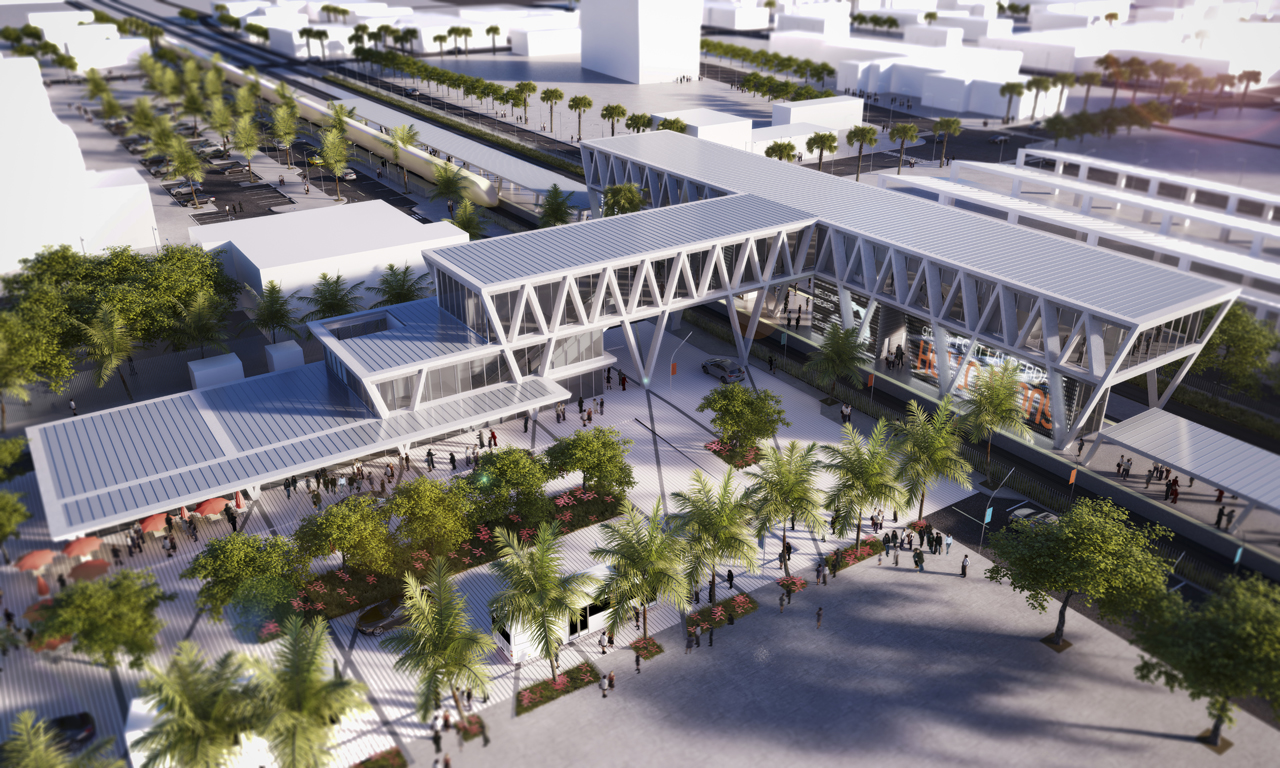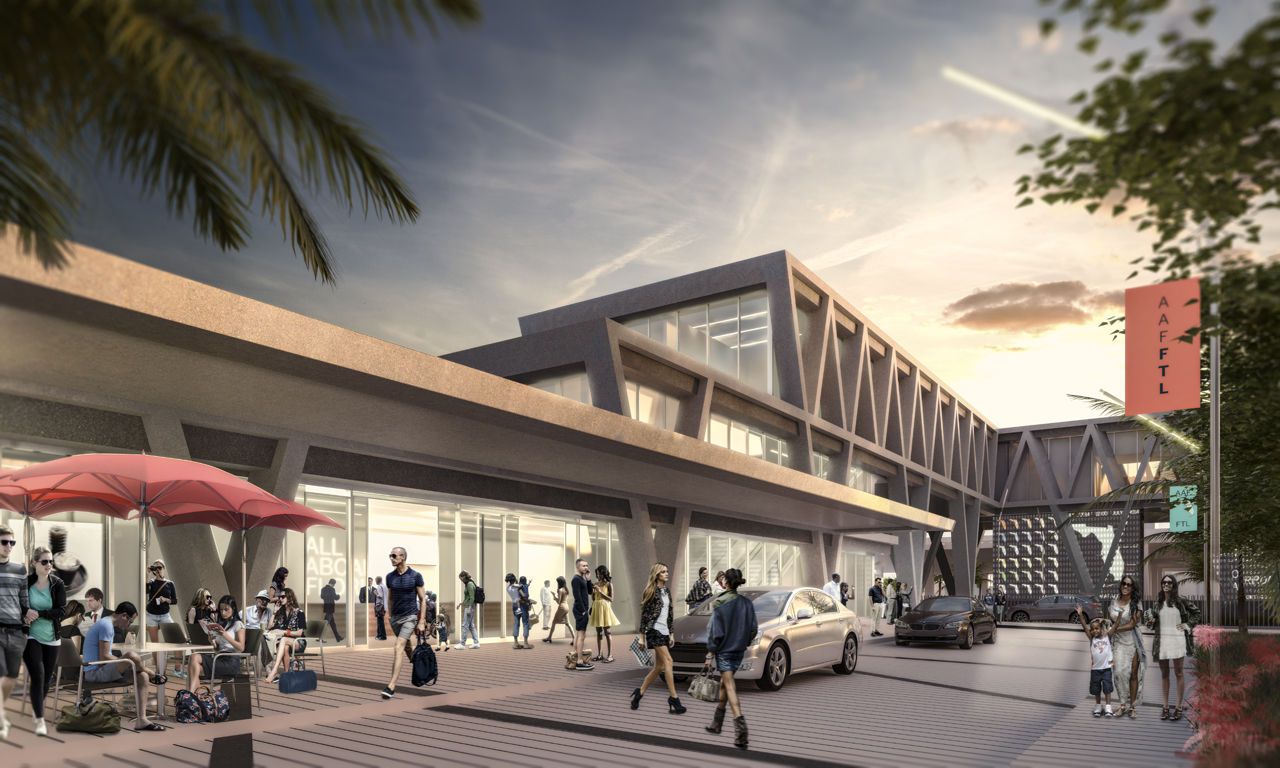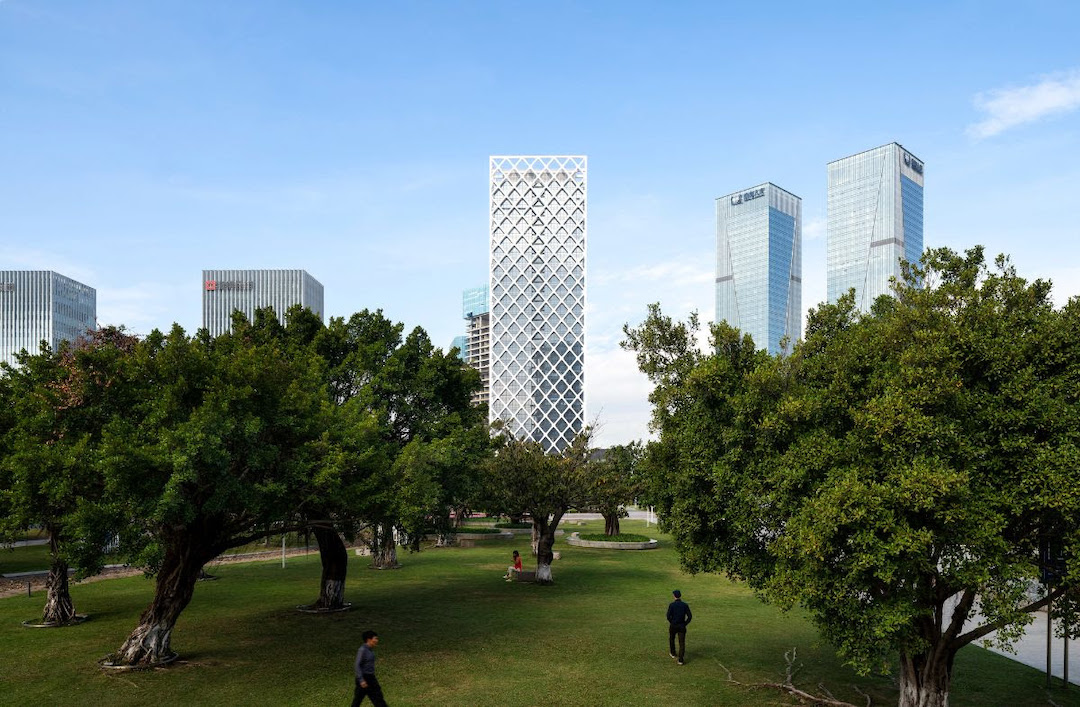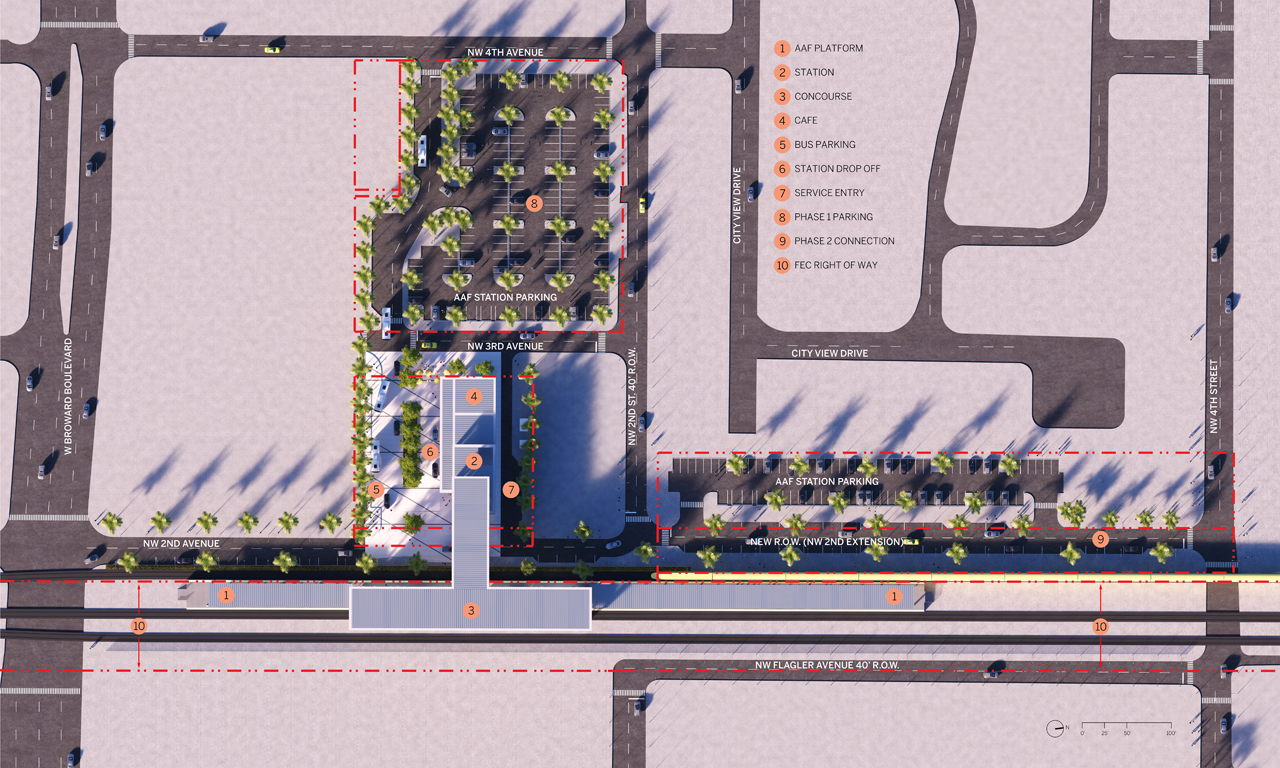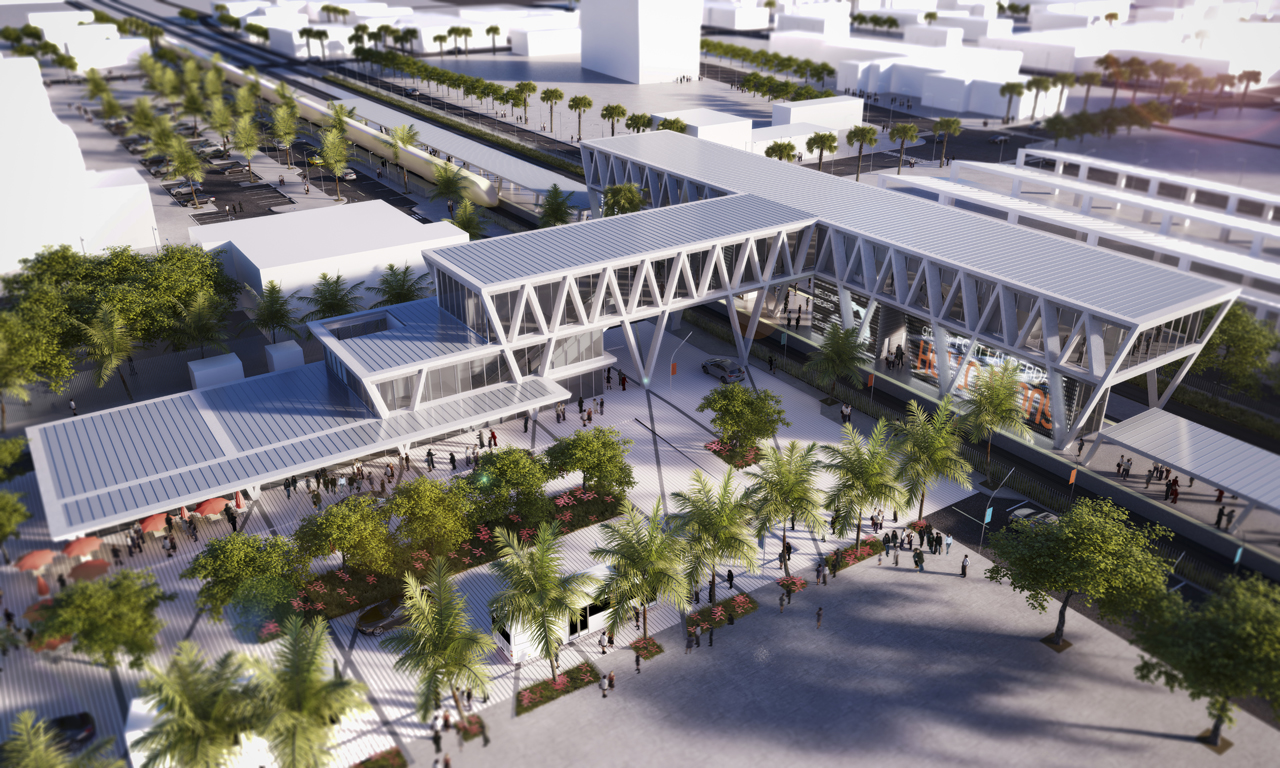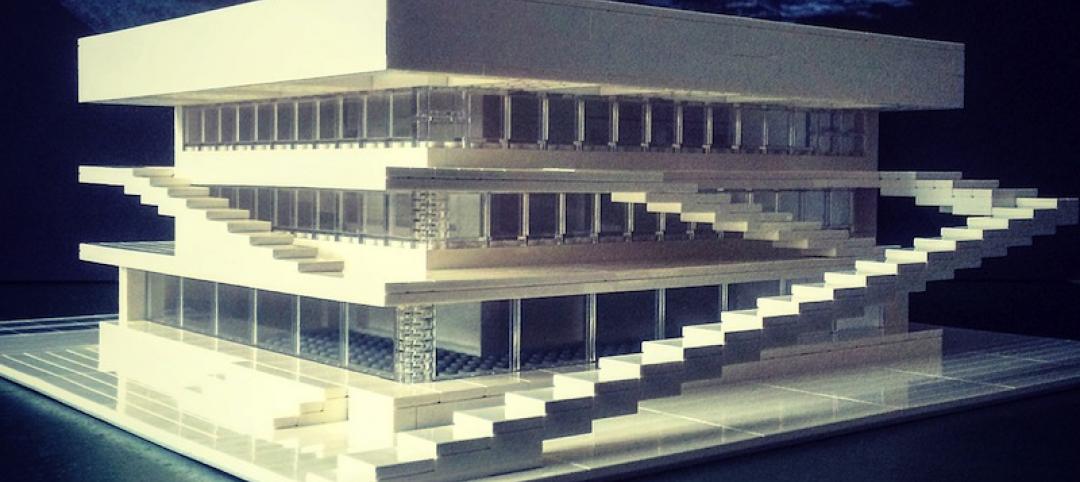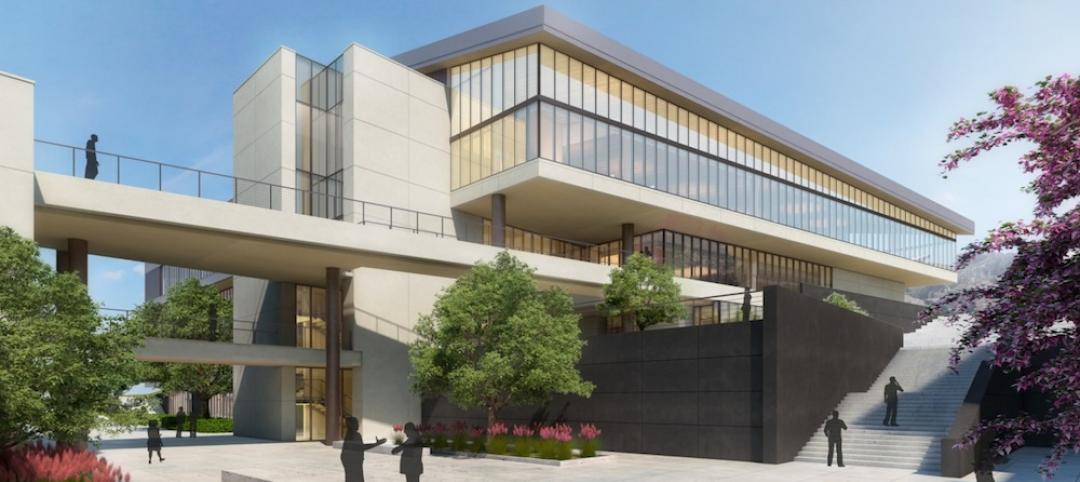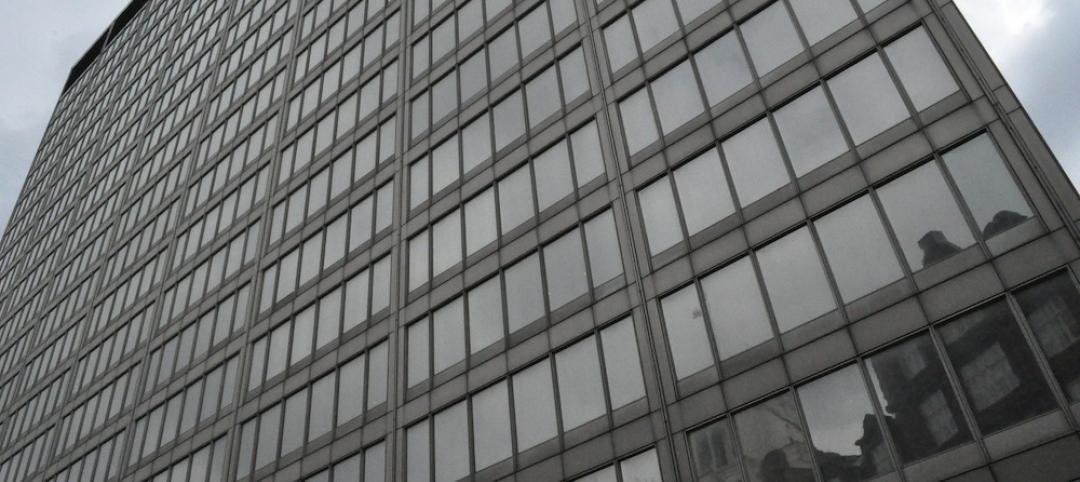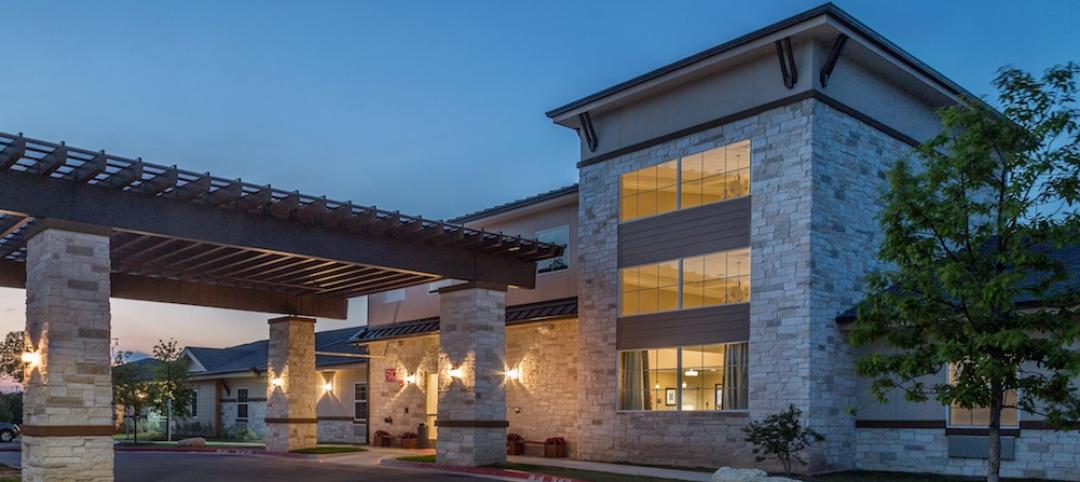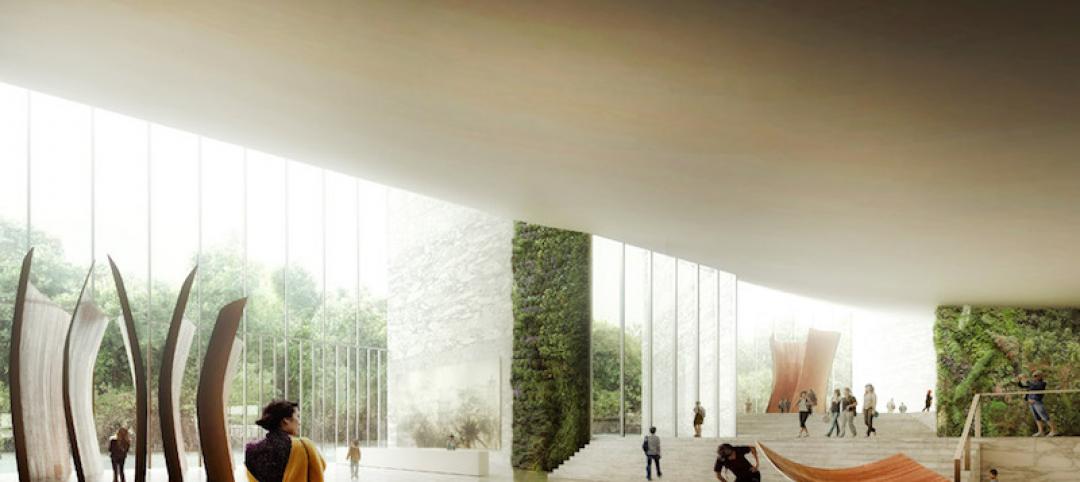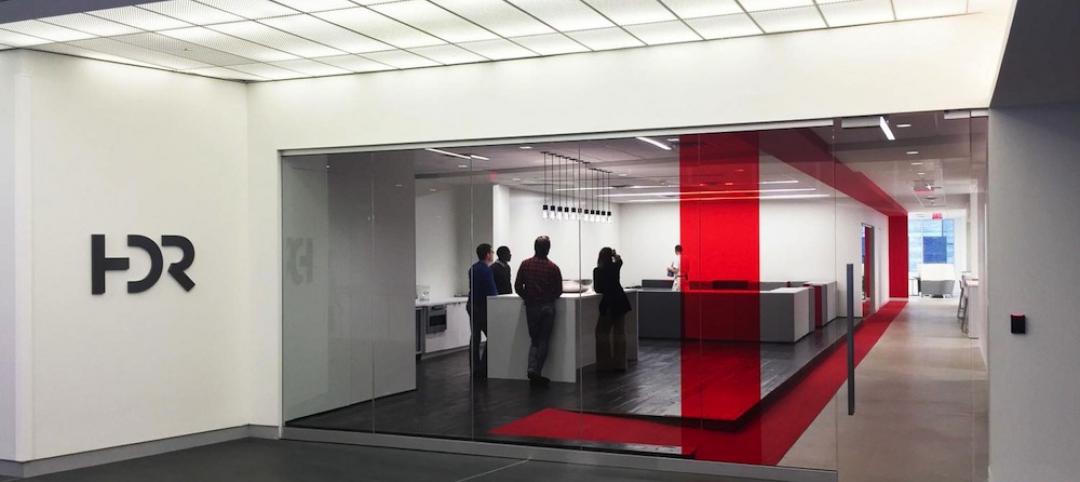An estimated three million car trips will be eliminated from the Southeastern United States each year—one of North America's region busiest with visitors, thanks to sunny weather and theme parks. At least, that's the plan for All Aboard Florida, the country's only privately owned, operated, and financed railway project.
The 235-mile rail network will connect South Florida to Orlando by utilizing the existing Florida East Coast corridor infrastructure. Global leading architectural firm Skidmore, Owings & Merrill (SOM) was invited on board as architect and planner for the Fort Lauderdale station.
The design, unveiled yesterday, is lightweight and luminous, which SOM Design Partner Roger Duffy says "responds to its setting and creates a striking infrastructural icon for the city."
“Fort Lauderdale is a dynamic city whose leadership understands the importance of creating new opportunities and solutions that keep up with the needs and demands of our increasingly mobile world,” says Michael Reininger, President and Chief Development Officer of All Aboard Florida. “As with our other planned stations in South Florida, All Aboard Florida will not only set a new standard in passenger rail, but will revitalize Fort Lauderdale’s downtown core fueling job and business growth, reducing road congestion, increasing tourism, delivering state and local tax revenues, and contributing long-term environmental benefits.”
The 27,500-sf station will be situated in northern downtown Fort lauderdale on 4.8 acres adjacent to existing Florida East Coast Railway tracks. The building will rise above surrounding buildings, serving as a powerful urban focal point.
A press release from SOM describes how a day in the station would be like:
The plan for the station itself is open and intuitive. Arriving passengers will enter a glazed ticketing lobby at grade level, with dedicated vehicular drop-off and pedestrian links to the city. Travelers will then ascend up an escalator to a bridge over NW 2nd Street, and enter a departures lounge, elevated 30 feet above the station platform.
Additional banks of escalators will take waiting passengers down from the floating lounge, onto the shaded platform, and into their trains. The use of glass throughout this sequence of spaces provides a constant visual connection to the city as well as approaching trains. Viewed from a distance, the station’s stacked, dynamic form evokes a feeling of movement.
Related Stories
Architects | Mar 11, 2016
German artist recreates Brutalist buildings with LEGO blocks
Arndt Schlaudraff brings the beauty out of the rugged, linear style of buildings most popular a half century ago.
Architects | Mar 11, 2016
Architecture for Humanity rebrands itself as Open Architecture Collaborative
With a new name, logo, and mission, the Open Architecture Collaborative is seeking a fresh start.
Architects | Mar 11, 2016
AIA survey finds many women and minority architects still feeling underrepresented and unfulfilled
Dissatisfaction with “work-life balance” and compensation are cited as reasons why companies’ diversity strategies may be faltering.
University Buildings | Mar 11, 2016
How architects can help community colleges promote community on campus
Even in the face of funding challenges and historic precedent, there are emerging examples of how partnership between two-year academic institutions and designers can further elevate community on campus. CannonDesign's Carisima Koenig has a few key examples.
Architects | Mar 10, 2016
Value engineering: How to manage the process and limit the risk of VE
AEC consultant Steve Whitehorn shares several ways in which architects can be more effective managers of value-engineered change.
Architects | Mar 9, 2016
Two Houston firms merge to form Method Architecture
In mid-2016, Architects-Plus and Three Square Design Group will join to make a studio that will design industrial centers, corporate interiors, breweries, and more.
Hotel Facilities | Mar 7, 2016
Exclusive villas and spa in China will be built at the center of a lake
The only connection between the complex and the mainland will be a narrow pedestrian bridge.
Office Buildings | Mar 2, 2016
HDR redesigns Twin Cities' studio to have coffee shop vibe
With open spaces, huddle rooms, and a design lab, the firm's new digs are drastically different than the old studio, which felt like working in a law office. Design Principal Mike Rodriguez highlights HDR's renovation plan.
Architects | Feb 25, 2016
12 architects selected for 2016 AIA Young Architects Award
Winners include Amy Kalar and Karen Lu, both with HGA, BNIM's Carey Nagle, and MSR Design's Bob Ganser.
Architects | Feb 24, 2016
Is the booming freelance economy a threat to AEC firms?
By shifting the work (and revenue) to freelancers, “platform capitalism” startups have taken considerable market share from traditional businesses.


